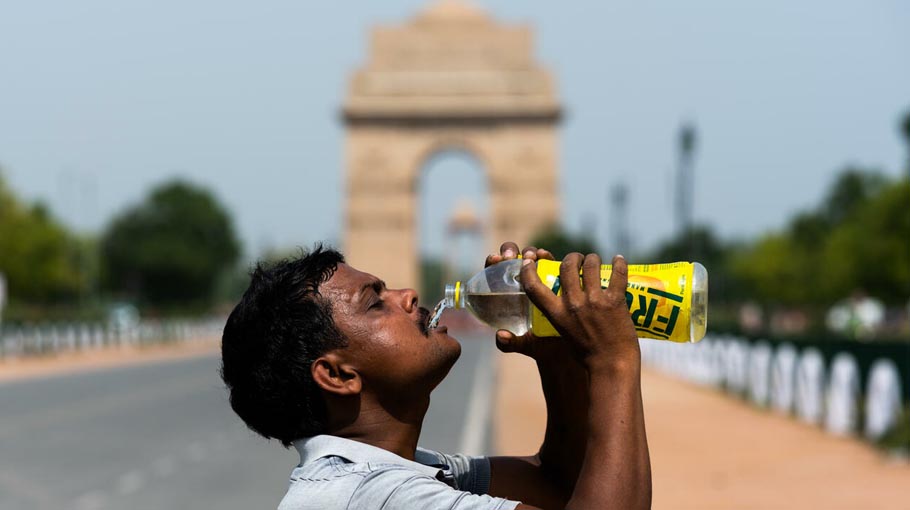India braces for severe heatwave in 2023

It has been such a weird 2023. And its only March! We have seen snowstorms in California, ice storms in England ahead of Spring, temperatures touching nearly 40 degrees Celsius in parts of India in February.
February of 2023 was the hottest in the country since 1901, according to India’s met department. Several heatwave warnings have already been issued for the coming weeks and months, especially between March and May. Even the Prime Minister chaired a meeting on this issue.
Last week, Aaditya Thackeray of the Uddhav Shiv Sena tweeted how Mumbai hit 39.4 degrees Celsius in March, something the city doesn’t even see during the peak summer season in May. “Climate change is here”, Thackeray tweeted, pointing out that Maharashtra does not have a full time environment minister.
Enhanced probability of heatwaves
The Indian Met department has warned that many regions are likely to see an “enhanced probability” of heatwaves this year, which means it will be above 40º C in the plains, 30º C in hilly areas, or 37º C in coastal areas.
India has been seen a greater frequency of heatwave in recent years as the world struggles with climate change. This isn’t new to us but experts point out that they have become more intense. I can never forget Delhi at 49 degrees last summer. Last year too, the heatwaves started earlier than usual, in March.
A Lancet report released in 2022 says India saw a 55% rise in deaths due to extreme heat between 2000-2004 and 2017-2021. The report found that the heatwave which hit India between March and April was 30 times more likely to have happened because of climate change and noted that “exposure to extreme heat affects health directly, exacerbating underlying conditions such as cardiovascular and respiratory disease, and causing heat stroke, adverse pregnancy outcomes, worsened sleep patterns, poor mental health, and increased injury-related death.”
India has been seen a greater frequency of
heatwave in recent years as the world struggles
with climate change. This isn’t new to us but
experts point out that they have become more
intense. I can never forget Delhi at 49
degrees last summer
The freak weather is not limited to India. We have seen global weather patterns suddenly change. Parts of Europe recorded 40 degrees last summer, London was simmering at over 30 degrees for several days. Winter was either severe in many parts of the world or non existent. Many of Europe’s famous ski slopes didn’t have any snow this season.
New global warming records
This year is predicted to set new global warming records mainly because the strongest ever La Nina event is expected to end soon. La Nina refers to cooler than normal surface waters in the equatorial Pacific Ocean, which in turn has a temporary cooling effect on the Earth’s atmosphere.
In 2022, average global temperatures were 1.15 degrees C higher than the pre-industrial average, making it the fifth warmest year on record, even in India. It would have been worse if there was no La Nina event. With that set to change this year, concerns have mounted that this may end up being the hottest year ever.
The question is: are we ready to deal with this surge in temperatures? Experts have praised Ahmedabad’s preparedness for heatwaves, with a “heat action plan” that was started in 2013. Under this plan, early warnings are issued to citizens about heatwaves and hospitals are alerted for the possibility of more admissions.
If the temperatures soar, then authorities take steps and for example, install more water dispensers and set up extra medical centres. Citizens are told frequently about what they can do to protect themselves through Whatsapp and radio and TV ads. According to one study, this saved the lives of over 2000 people during heatwaves in 2014 and 2015.
Experts say all cities need to prepare like this and invest in making small changes. Like painting roofs of buildings with solar reflective paint, which can really lower temperatures inside
As I write this piece, the weather department has told us there will be rain over the next few days which could damage crops ready for harvest. This is pre monsoon rain — in March!
Nidhi Razdan is an award-winning Indian journalist. She has extensively reported on politics and diplomacy.
Source: Gulf News



